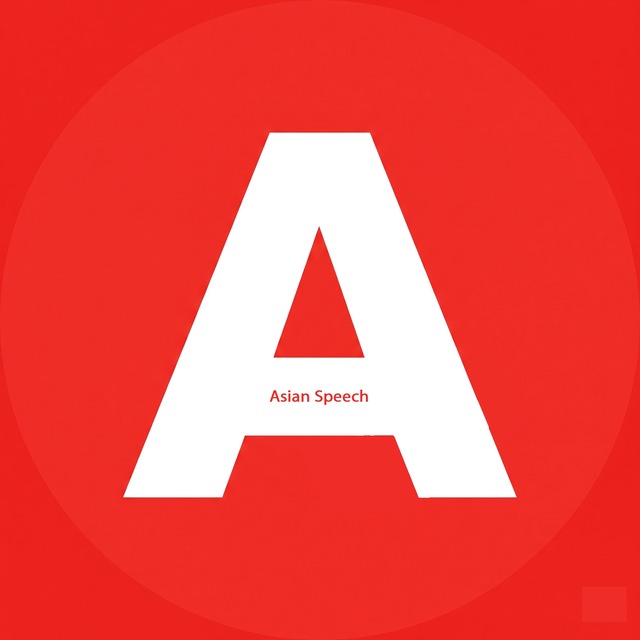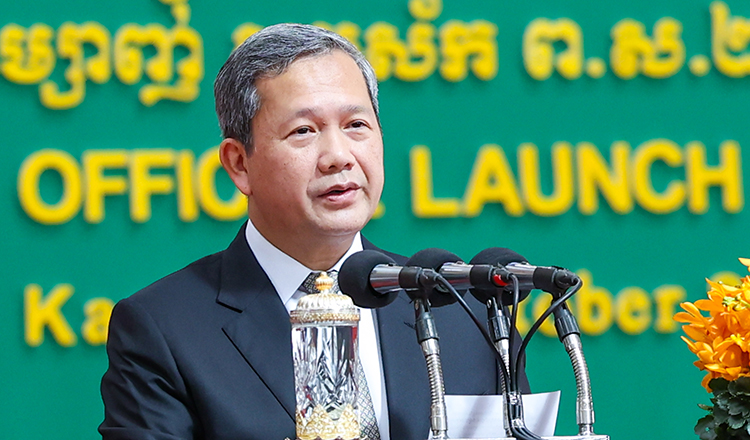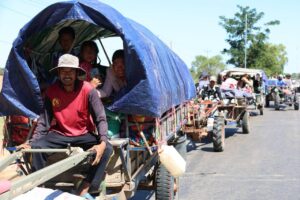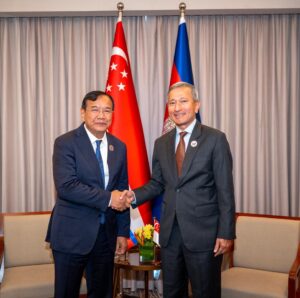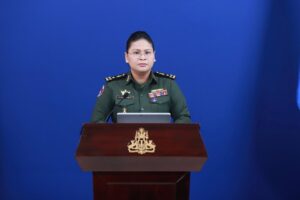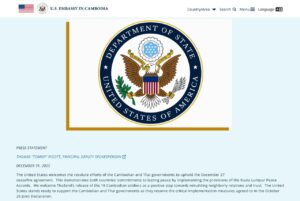PM Hun Manet Reaffirms Cambodia’s Firm Stand on Peaceful and Law-Based Resolution to Border Issues
Phnom Penh, 23 October 2025 — Samdech Moha Bovor Thipadei Hun Manet, Prime Minister of the Kingdom of Cambodia, has reaffirmed the Royal Government’s unwavering commitment to resolving the situation in Chouk Chey and Prey Chan villages through peaceful, legal, and technical means, under mechanisms mutually agreed upon between Cambodia and Thailand.
In his public statement today, Samdech Thipadei informed the Cambodian people that progress has been made in addressing the situation, as both sides have agreed to rely on technical and legal principles to seek a fair and sustainable solution through peaceful dialogue.
The issue, which arose over the past two months due to the encirclement of several Cambodian homes and farmland in the two villages by Thai military wire fences and vehicles, has caused serious hardship to affected residents and growing anxiety among Cambodians both inside and outside the country.
Samdech Thipadei emphasized that the Government’s foremost objective from the beginning has been to prevent the situation from escalating or spreading further, to avoid greater harm to local communities. The Royal Government has pursued all possible means to achieve an early and peaceful solution, with patience and restraint, in accordance with diplomatic and legal procedures.
He stressed that violence cannot bring about any real or lasting solution, but rather risks expanding the area of conflict, worsening civilian suffering, and making future resolutions more difficult.
Addressing public concern and misunderstanding, Samdech Thipadei strongly refuted any allegation that the Royal Government had made a secret agreement to cede Cambodian land in exchange for a ceasefire or peace arrangement.
“There has been no secret agreement or transfer of Cambodian sovereign territory to any country,” he said. “Cambodia does not violate the sovereignty and territorial integrity of its neighbors, but likewise, Cambodia will never accept any violation of its own sovereignty and territorial integrity.”
Samdech Thipadei further noted that the border issue is a long-standing and complex historical matter that both countries must continue to resolve together, in order to ensure that citizens on both sides can live peacefully along the border for generations to come.
He reaffirmed that any acceptable solution must be based on transparency, mutual consent, and the absence of coercion, while fully respecting the existing treaties, conventions, and agreements between the two nations.
In this regard, he highlighted that border demarcation work falls under the authority of the Cambodia–Thailand Joint Boundary Commission (JBC), which operates within peaceful and legal frameworks based on the existing treaties and agreements between the two countries.
“Over the past 20 years, the JBC has made significant progress, even though its work is not yet complete,” he stated.
Samdech Thipadei also noted that during the two-day JBC meeting held from 21–22 October 2025, both sides conducted in-depth and constructive discussions aimed at finding a fair and transparent technical solution to end the dispute in Choek Chey and Prey Chan villages, located between boundary pillars No. 42 and No. 47.
Both sides agreed to continue joint technical activities, including joint survey and provisional demarcation, using the 1:200,000 map of the 1907 Franco-Siam Treaty and the records of the French–Siamese Boundary Commission pillars as references. The results will later be verified with the actual land occupation of the residents on both sides to facilitate a long-term resolution.
Samdech Thipadei underscored that this is the only approach that can lead both sides to a correct, sustainable, and mutually acceptable solution — one that will allow the affected residents to resume their normal lives in peace and stability.
